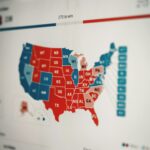What is the Role of a Policy Analyst?
The policy analyst makes a think tank a think tank. Without the analyst, the organization could be a 501(c)3 blog, newspaper, event producer, or political group. It would not, however, be a policy research institute. Policy analysis and recommendations are the essence of a think tank.
Policy analysts work on their own or in a team to track national trends, academic research, political currents, and the arcane details of laws and regulations. This also includes following the money and understanding what the budgeted funds buy. Determining the effectiveness of government programs can require another level of investigation. Some analysts undertake this themselves, while others wait for government agencies or academic researchers to do this.
The main focus for a policy analyst is crafting policy papers that critique current policy proposals, examine existing policies, and offer alternatives. In many think tanks, however, the policy analyst is in charge of marketing his or her ideas in other formats. This may involve scheduling events, bringing in speakers, being interviewed by media, writing opinion pieces for newspapers, writing in national publications, answering questions from legislators and staff, and speaking to activist or community groups.
At times, the policy analyst may also testify before elected bodies—town councils, county commissions, school boards, or legislative committees. In these situations, the analyst is expected to serve as an outside expert, though the degree of formality can differ based on the speaker and the audience. In general, some written version of the comments, whether the presentation used or a planned speech, is useful to complement the talk itself.
Part of the job each day is reading news, journals, blogs, and policy reports from other organizations. At many think tanks, the analyst will also be expected to turn this information into blog posts to share insights or links to previous publications and outside sources. A growing number of analysts and think tanks also post their comments on Twitter, Facebook, and LinkedIn, or use del.icio.us to track and share relevant links.
A final aspect of the job is fundraising. Every person who works at a think tank is responsible for developing the resources that will help the organization continue its work. Sometimes, this role is explicit and the policy analyst is given a budget and a fundraising target. Organizational culture and the analyst’s own strengths and weaknesses more often will determine what role, if any, the analyst has in this process.
Next week, I’ll cover common qualities that help policy analysts excel.
Joe Coletti is a policy specialist at the State Policy Network and a leader of AF’s Raleigh chapter. This is an excerpt from the Institute for Humane Studies Policy Career Guide.




